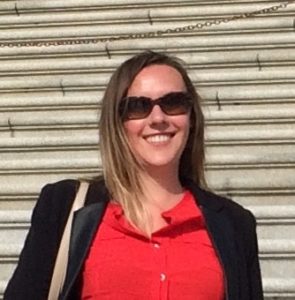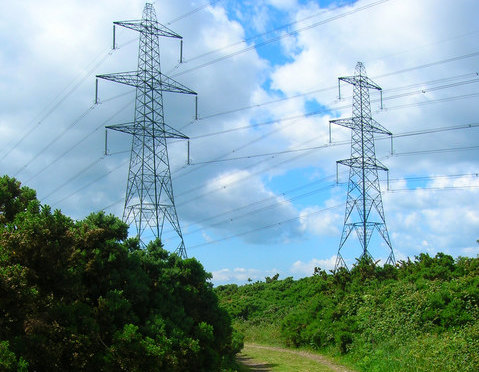 By SILVIA ZINETTI
By SILVIA ZINETTI
In the past three articles, I analyzed several aspects of the Hera Group, its strong dedication to sustainable development, and how the company is advancing energy efficiency in industry. There is one more thing I would like to mention, namely Hera’s organizational structure and some common features with the Community Choice Energy (CCE) programs in California, also known as Community Choice Aggregation (CCA). For this purpose, I will explore data from Marin Clean Energy (MCE), which I introduced in previous articles as the subject of my research.
First aggregation experiment in Italy and in California
The Hera Group was born from the aggregation of eleven municipal companies in the Emilia Romagna region in Italy and has since grown with the incorporation of other companies in other neighboring regions. It is the first corporation of this kind and thus the first experiment of municipal aggregation in Italy. Marin Clean Energy was born from the aggregation of the electricity needs of cities and towns in Marin County, California, and has since expanded its operation to neighboring cities and Counties. It is the first Community Choice Aggregation program in the State of California.
Municipalities as part of the organization governance
Hera is a joint stock company, with the majority publicly owned. The shareholder structure is characterized by the presence of several municipalities in the reference territory and a private shareholding spread[i]. MCE is a non-profit agency, in the form of a Joint Power Authority[ii]. The Board of Directors includes elected city and county officials representing each of the communities that MCE serves[iii].
Strong Local Roots
Hera maintains a strong relationship with its customers through the group companies and territorial operating structures. In 2013 Hera started a new project, the “HeraLab”, to increase its presence on the territory and strengthen its relationship with the local communities[iv]. MCE has strong collaborations with local partners and maintains an open dialogue with its communities. In 2014, MCE formed a Community Power Coalition, a partnership with community and grassroots policy advocacy organizations working on sustainability, environmental justice, and low-income issues[v].
Competition
Hera faces strong competition between operators in the energy sector as it operates in the Italian liberalized retail market. The company developed a successful business model based on a multi-business growth strategy, focusing on quality, cost reduction, innovation, sustainability and shared value, and a close relationship with its territory. MCE performs its services in a regulated retail market and faces strong competition from the incumbent utility, as customers can opt out from the program at any time. MCE was created to give a choice to the customers and its business strategy focuses on local sustainable development, electricity cost reduction, and close relationship with the community.
Renewable energy in the electricity mix and future goals
Hera’s energy production comes for more than 70% from renewable and assimilated sources. Hera committed to power all Hera Spa activities in the Emilia-Romagna region with 100% renewable energy. MCE’s electricity basic offer includes 55% of energy produced by renewable sources[vi]. MCE intends to gradually replace the conventional energy resources in its basic offer supply portfolio with an 80% renewable energy goal by 2025[vii].
Promotion of energy efficiency
Hera achieved a 2.6% reduction of the energy consumption compared to 2013, with a goal of 5% by 2020. MCE’s long-term goal for energy efficiency programs in its service area is to reduce overall annual energy consumption by approximately 2%.
Reduction of GHG emissions
Hera’s carbon footprint dropped by 10% for the energy production, with a target of 19% by 2020 compared to 2015. MCE’s 2014 aggregate portfolio emission factor was approximately 26% lower than the incumbent utility. MCE’s goal is to achieve a 100 % greenhouse gas-free supply portfolio by 2025[viii].
Points of reflections
Local energy aggregation seems to have positive results in the territories where Hera and MCE perform their services. Similarities between the two organizations include:
- Hera and MCE were the first aggregation experiment, respectively in Italy and in California;
- The municipalities are part of the governing structure in both organizations;
- Both Hera and MCE have robust local roots and maintain a strong relationship with their clients and the territory;
- Both organizations face strong competitions while different market conditions. Their respective business strategy include among other, sustainable development, cost reduction, and close relationship with the territory;
- Both organizations are working towards common goals of increasing the use of renewable energy, improving energy efficiency, and reducing the greenhouse gas emissions in a significant way.
Although different in nature, Hera is a multi-utility operating in the energy, environment, and water sector, while MCE is a public agency dealing with the procurement and generation of the electric power, both organizations are successful with their local energy aggregation business model and contribute to the sustainable development of their respective territory.
Undoubtedly, there are lessons to be learned from both approaches.
[i] http://eng.gruppohera.it/group/corporate_governance/shareholders/
[ii] JPA is a legal structure where neighboring cities and communities jointly implement a single CCE program through a public, non-profit agency
[iii] https://www.mcecleanenergy.org/faq/
[iv] http://eng.gruppohera.it/group/who_we_are/geographical_dispersion/
[v] https://www.mcecleanenergy.org/community-power-coalition/
[vi] MCE offers an opt-in product with 100% renewable energy
[vii] MCE 2018 Integrated Resource Plan, November 2017
[viii] Understanding MCE’s GHG Emission Factors – Calendar Year 2014
Editor’s note: This article originally appeared on Energy in Demand at https://energyindemand.com/2018/04/05/blog-from-silvia-zinetti-spring-thoughts-on-local-energy-aggregation-similarities-between-the-italian-hera-group-and-the-community-choice-energy-programs-in-california/
Silvia Zinetti is a sustainable energy expert and policy advisor, based in Arlington, Virginia.
Leaders in Energy will be hosting an event on Utilities of the Future on Thursday, October 4th, 5:30 – 8:30 pm, at the Edison Electric Institute.
For more information: https://leadersinenergy.org/utilities-of-the-future/ and registration: https://events.r20.constantcontact.com/register/eventReg?oeidk=a07efnsxsvid123e11d&oseq=&c=&ch=



Leave a Reply